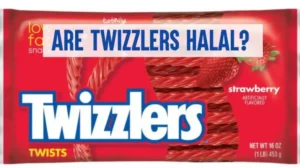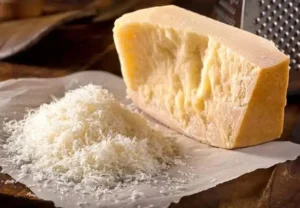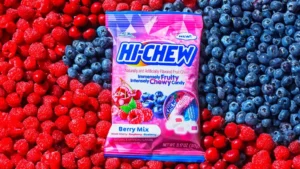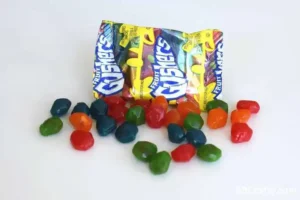Are Dots Halal? Complete Ingredient Analysis and Guide

Are Dots halal? If you’re a Muslim and love sweet treats, you may have wondered if Dots—those chewy, colorful candies—are halal and permissible to eat. As a practicing Muslim, ensuring that everything you consume aligns with Islamic dietary guidelines is crucial.
Even seemingly simple products like candy can sometimes contain non-halal ingredients, such as gelatin or alcohol-based flavors, making it necessary to evaluate the ingredients carefully.
In this post, we’ll take a closer look at the ingredients found in Dots candy, break down their halal status, and provide actionable insights to help you make informed decisions.
We’ll also explore common concerns like artificial colors and the possibility of cross-contamination during production. By the end, you’ll have a clear understanding of whether Dots are suitable for a halal-conscious diet.
What Are Dots and Why Is Their Halal Status Important?
Dots are small, gumdrop-like candies produced by Tootsie Roll Industries. They are known for their chewy texture and fruity flavors, making them a favorite among both children and adults.
While these candies seem harmless, certain ingredients in candy products—like gelatin or food coloring—can sometimes be derived from animal sources, raising concerns for Muslim consumers.
Therefore, it’s essential to analyze the ingredients of any candy product to ensure it aligns with halal dietary standards.
Halal certification ensures that a product is free from haram (forbidden) substances, such as pork derivatives, alcohol, or improperly slaughtered animal products. Products without certification might still be halal, but it becomes necessary to verify each ingredient.
Given the increasing awareness about dietary restrictions, many consumers now contact manufacturers to confirm the permissibility of their favorite snacks.
In addition, some companies manufacture both halal and non-halal products in the same facilities, creating the risk of cross-contamination.
Even if the ingredients themselves are halal, the production process might not be. As such, a closer look at the composition of Dots is necessary to make an informed choice.
Are Dots Halal?
Yes dots are halal friendly. Dots are a popular candy that aligns well with halal dietary principles due to their plant-based ingredients and the absence of haram substances like gelatin or alcohol. Although they are not halal-certified, their simple ingredient list makes them a suitable option for many Muslim consumers.
If you follow stricter halal guidelines, contacting the manufacturer or looking for halal-certified alternatives can provide added peace of mind.
READ ALSO: Are Planters Peanuts Halal? A Comprehensive Guide
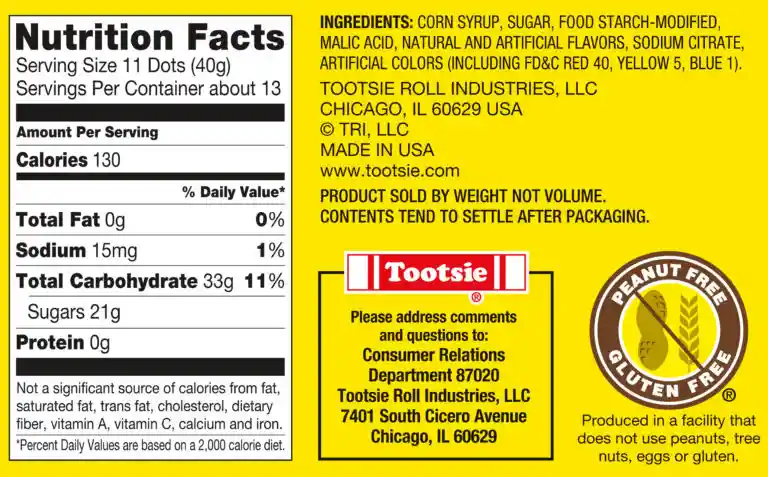
Detailed Ingredient Breakdown
Below is a breakdown of the ingredients in Dots and whether they meet halal standards:
1. Corn Syrup and Sugar
Corn syrup is derived from corn starch, making it plant-based and naturally halal. It serves as a sweetener and provides the candy’s chewy texture. Similarly, sugar is generally halal, though some concerns arise when it is processed with bone char (derived from animal bones).
However, most large manufacturers in the U.S. and Canada no longer use bone char in sugar production. Action Tip: If you want extra assurance, check with the manufacturer or look for halal-certified sugar on the ingredient label.
2. Modified Food Starch and Malic Acid
Modified food starch is typically sourced from corn, potatoes, or tapioca, all of which are plant-based and halal. However, there is a slight chance that some starches are treated with enzymes from non-halal sources, though this is uncommon.
Malic acid is another ingredient found in Dots, often derived from fruits like apples. Its role is to provide the candy with a slightly sour taste. Since malic acid is either plant-based or synthesized in a lab, it is considered halal.
3. Natural and Artificial Flavors
Natural flavors usually come from plants, but in rare cases, they can be animal-based. Meanwhile, artificial flavors are created synthetically, which means they are usually halal unless they contain alcohol-based solvents.
This makes flavors one of the most uncertain aspects of any processed product. Pro Tip: Reach out to the manufacturer to confirm the source of natural flavors or check if they offer a halal-certified version of the product.
4. Artificial Colors: Red 40, Yellow 5, and Blue 1
The use of artificial colors in food has raised some concerns, especially since certain colors were once derived from insects. However, Red 40, Yellow 5, and Blue 1 are now synthetic dyes and generally accepted as halal by most Islamic scholars.
These colors are often used to enhance the candy’s appearance and do not involve any animal-based components.
Evaluating Their Overall Halal Status
Based on the ingredient analysis above, Dots can be considered halal-friendly. They contain no animal by-products, gelatin, or dairy—common culprits that render many candies haram.
The ingredients used in both the Original Dots and Tropical Dots are plant-based, meaning they align well with the principles of halal consumption.
However, there is a subtle difference between being halal-friendly and being certified halal. Although Dots seem suitable for halal diets, the absence of a formal halal certification might leave some consumers hesitant. In such cases, reaching out to the manufacturer for confirmation can provide peace of mind.
It’s also worth noting that production practices can impact the halal status of a product. While Dots candies contain only plant-based ingredients, if they are manufactured in a facility that handles non-halal items, the risk of cross-contamination exists.
For those who follow stricter halal guidelines, it is advisable to confirm whether the manufacturing process involves dedicated production lines.
Are Tootsie Dots Halal? Clarifying the Parent Company’s Practices
Tootsie Roll Industries, the company behind Dots, has stated that their products do not contain any gelatin, animal-derived ingredients, or alcohol. Although the company does not carry halal certification for Dots, the absence of common haram ingredients makes them a permissible choice for many Muslim consumers.
The lack of halal certification could be due to logistical reasons, such as certification costs or the complexity of verifying every production stage.
However, this does not automatically mean the product is haram. If you follow a stricter halal lifestyle, it’s always good practice to reach out to Tootsie Roll Industries for a direct confirmation. This step can provide assurance that no animal-derived substances are involved in either the ingredients or the production process.
FAQs About Dots and Halal Candy
1. Do Dots Contain Gelatin?
No, Dots do not contain gelatin, which makes them a more suitable option for halal consumers compared to other gummy candies.
2. Are All Tootsie Products Halal?
While Dots are free from animal-derived ingredients, not all Tootsie products may be halal-friendly. Always check individual product labels and contact the manufacturer when in doubt.
3. Can I Eat Dots If They’re Not Halal-Certified?
Yes, you can eat Dots if you feel comfortable with the ingredients and production process. The absence of gelatin, alcohol, and animal by-products makes them a permissible option for many, even without formal certification.
4. Are Artificial Colors Like Red 40 and Yellow 5 Halal?
Yes, Red 40, Yellow 5, and other artificial colors used in Dots are synthetic and generally considered halal. However, if you prefer to avoid artificial additives altogether, look for alternatives labeled as “natural” or certified halal.
Conclusion
In a world where many candies contain hidden animal by-products, Dots offer a refreshing alternative that allows you to indulge in sweetness without compromising your beliefs. Always remain mindful of cross-contamination risks and remember to check for product updates as recipes can change over time.

